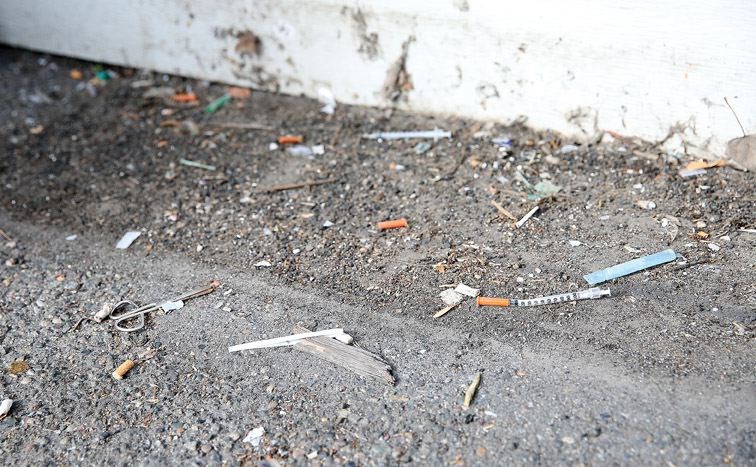Contrary to the impression left with city council, the vast majority of needles Northern Health's harm reduction clinic gives out are returned, according to public health officer Dr. Andrew Gray
As part of presentation Sept. 17 on the deployment of two-person bylaw compliance team to the downtown, council was told they picked up enough needles to fill three 19-litre (five-gallon) pails over August.
That drew some strong comments from Coun. Brian Skakun, who questioned whether the clinic can even be considered a needle exchange anymore.
"It's just absolutely appalling and in my opinion, Northern Health has completely failed us," Skakun said.
But Gray said that despite appearances, more than 90 per cent are either recovered from clients on a voluntary basis when they exchange them for fresh ones at clinic at Third and George or discarded in special containers distributed around the city.
"Unfortunately, a small proportion does end up discarded on the street and of course that's where the public concern arises," he said.
Gray acknowledged the number the team found is more than people would like to see but also noted they patrol areas where most of the public tend not to go such as alleyways.
All the needles the team picked up were found on the street and camps in the downtown and none from the sharps containers placed around the area, city spokesperson Mike Kellett confirmed on Tuesday.
Gray dismissed requiring clients to exchange needles on a one-for-one basis as unrealistic because it will force users to share needles and increase the risk of getting infections and spreading viruses like HIV.
Gray also said they don't pose the danger many people think they do. He said he chances of being stuck by a needle are low and the viruses found on one are likely dead by the time it's been found.
"There's actually never been a case of anyone contracting HIV from a discarded needle that's been sitting around, versus a fresh needle that's just been used and has visible blood on it," he said.
That said, a discarded needle should still be handled with care. Ideally, said Gray, they should be picked up with tongs or gloves and put into a rigid container - a plastic bottle or pop can will do. And he said children should be discouraged from picking up any needle that happens to have been found in a playground or park.

.png;w=120;h=80;mode=crop)

